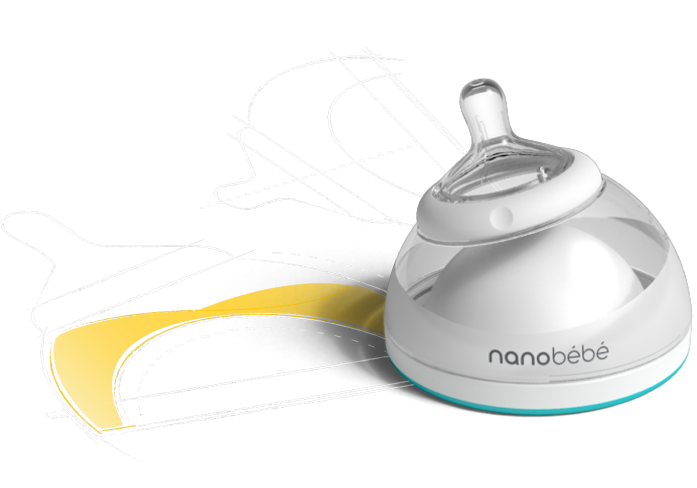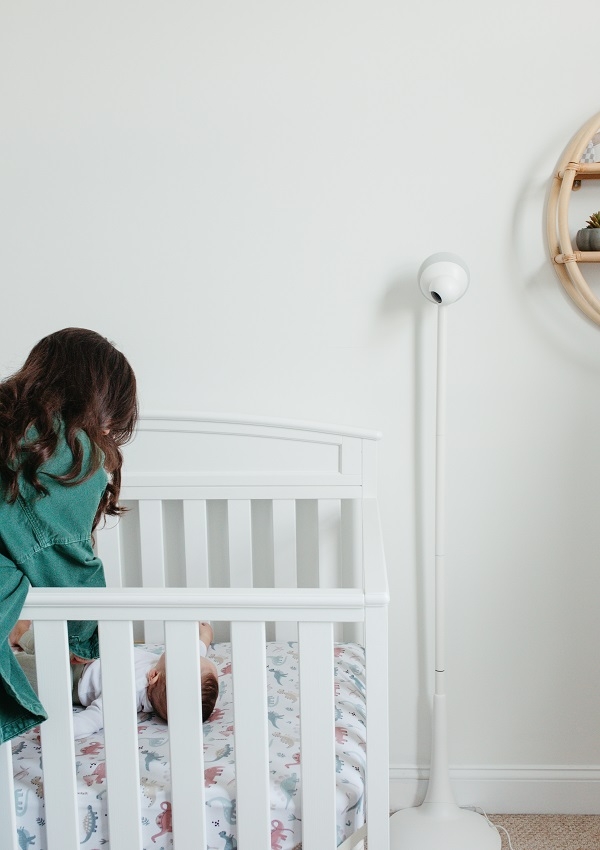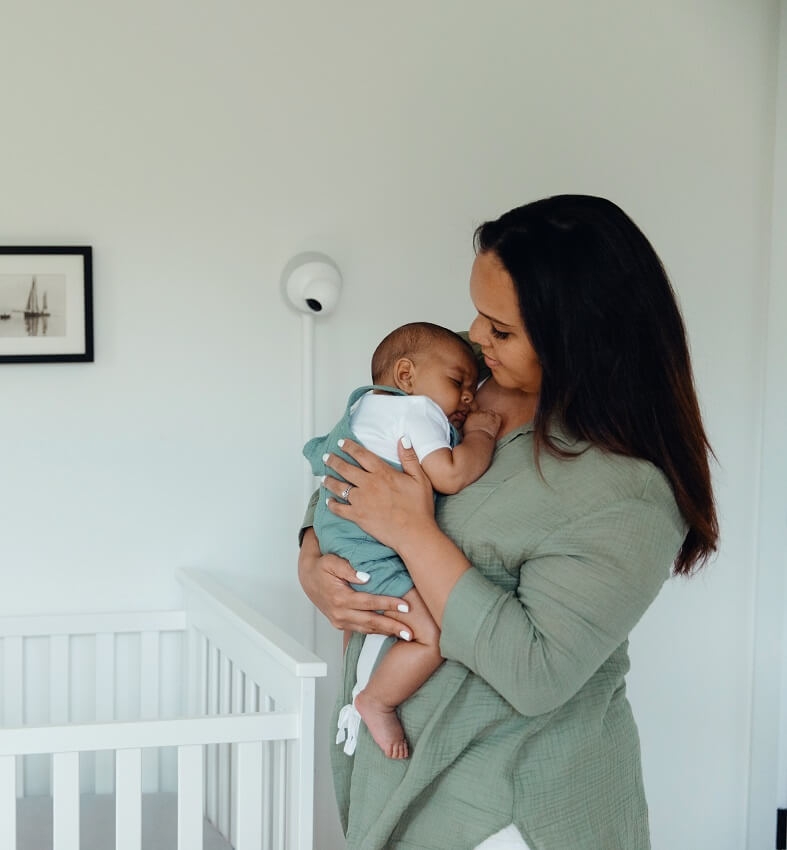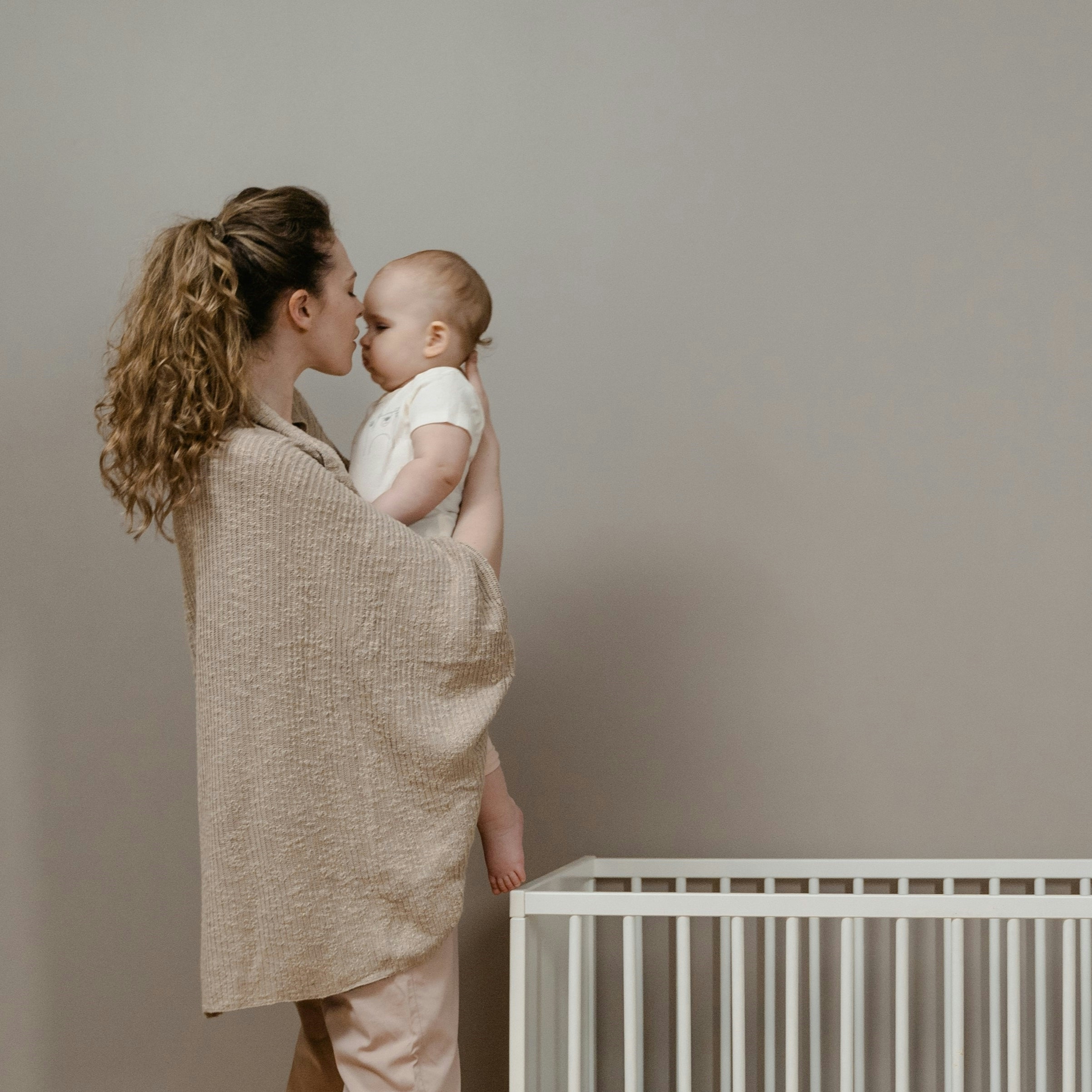Hit the Snooze Button on these Baby Sleep Training Myths
Dispel these common misconceptions about baby sleep.

Chloe Djabarou

Welcome to parenthood: the wonderful world of sleepless nights, nappy explosions and endless advice from well-meaning friends, family and even strangers. We understand that navigating the world of baby sleep can feel like tiptoeing through a minefield of conflicting advice. Fear not, weary warriors, we're going to debunk some of the most common baby sleep myths that may have you tossing and turning at night.
Rule #1: The Myth of the 12-Hour Night:
Ah, the elusive 12-hour night of uninterrupted sleep. This seems to be the Gold Standard in baby books around the world – that we want to get our children sleeping 7pm to 7am, straight through. However, it’s important to recognise that this kind of routine is often unrealistic and not suitable for all babies. Some babies naturally require less sleep than others, and their sleep patterns may change as they go through developmental stages. Expecting them to conform to a strict 12-hour sleep schedule may cause unnecessary stress and disappointment. Instead of achieving a strict 7-7 routine, it's more beneficial to focus on establishing healthy sleep habits, following your baby's cues, and creating a flexible sleep schedule that accommodates their individual needs. Remember, what matters most is a well-rested and content baby, regardless of the exact timing of their sleep.
Rule #2: Naps Must Be in the Cot:
We've all heard it: "Naps must happen in the cot, no exceptions!" Well, here's the truth: naps can happen anywhere that’s safe and your baby feels comfortable. Falling asleep in your arms can offer a sense of security and closeness, which can promote more restful (and longer) naps for your little one. Allowing flexibility in nap locations also gives you the freedom to adapt to different situations and environments, such as when you're out and about or visiting family and friends. The most important factor is ensuring your baby gets the sleep they need, regardless of the location. Feel free to adapt and find what works best for your little one's nap routine.

Rule #3: All babies need a 2-hour lunch nap:
While the idea of a 2-hour lunch nap may sound appealing, but the reality is that babies don't necessarily need such long daytime naps. Every baby is different, and their sleep needs can vary based on age, temperament, and developmental stage. Some babies may naturally take more frequent, shorter naps throughout the day, while others may prefer fewer, but longer periods of rest. What matters most is that your baby is getting enough sleep over a 24-hour period and waking up refreshed and content. Instead of fixating on a rigid 2-hour lunch nap, pay attention to your baby's sleep cues and establish a flexible nap routine that works for them. If you're unsure about your baby's sleep patterns or have concerns about their daytime sleep, it's always a good idea to consult with a healthcare professional or a trusted sleep consultant for guidance.
Rule #4: Always put them down ‘Drowsy but Awake’:
The phrase "drowsy but awake" has haunted many parents trying to lull their baby to sleep. It is recommended that you put your baby down in their cot while they're still awake, but on the verge of sleep. While it may sound like an ideal scenario, many babies find it challenging to transition from a drowsy state to actually falling asleep (and often end up fully waking up and feeling rather annoyed!) As a result, this approach often leads to frustration and prolonged bedtime routines for both parents and children. Trusting your instincts and understanding your baby's individual needs is key. If they prefer to be fully asleep before being placed in their sleep space, there is no harm in embracing those cuddles. If they prefer being put down fully awake and soothed in the cot, this can work wonders too! Remember, there is no one-size-fits-all approach to baby sleep, and finding what works best for your child is ultimately what matters most.
Rule #5: Avoid Feeding to Sleep at All Costs:
We've all been warned about the dangers of feeding a baby to sleep. However, feeding can be a soothing and natural way to help your little one drift off into dreamland. Whether you breastfeed or bottle-feed, the act of feeding provides comfort, nourishment, and a sense of security for your little one. It's a moment of closeness and connection that can help your baby relax and ease into sleep. While some may argue that feeding to sleep creates a sleep association and may lead to dependency, it's important to remember that babies are biologically wired to seek comfort from their caregivers. As your baby grows, they naturally develop independent sleep skills over time. If feeding to sleep is no longer working for you – you can make changes!
It's time to wave goodbye to those baby sleep myths that have been keeping you up at night. No more chasing after the perfect 12-hour night or fretting about napping locations. As we navigate the thrilling rollercoaster of parenthood, let's embrace flexibility and understand that every child is wonderfully unique. Trust your instincts, experiment with different sleep routines, and find what works best for your little bundle of joy. Armed with this newfound knowledge, may your nights be filled with more peaceful snoozing and fewer midnight dramas. Remember, we're all in this together!
*Nanobébé is thrilled to welcome guest bloggers. The views and opinions represented in these blog posts belong solely to the guest blogger and are not the legal responsibility of the company. The owner of this blog makes no representations as to the accuracy or completeness of the information provided by the guest blogger and will not be held liable for any errors or omissions of information nor for the availability of this information.

Chloe Djabarou
Share this post




